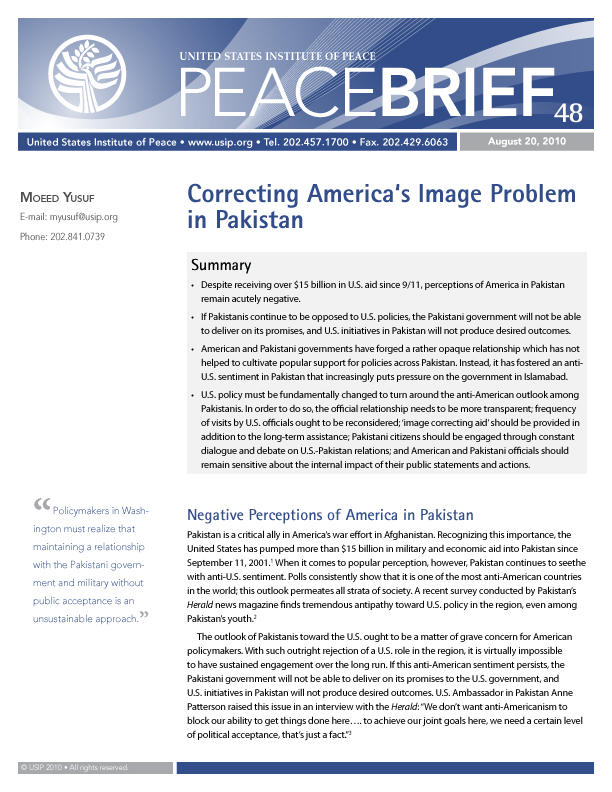Correcting America's Image Problem in Pakistan
Despite receiving over $15 billion in U.S. aid since 9/11, perceptions of America in Pakistan remain acutely negative.This report draws upon the author’s discussions with a large cross section of Pakistani opinionmakers during his four visits to the country in 2010.

Summary
- Despite receiving over $15 billion in U.S. aid since 9/11, perceptions of America in Pakistan remain acutely negative.
- If Pakistanis continue to be opposed to U.S. policies, the Pakistani government will not be able to deliver on its promises, and U.S. initiatives in Pakistan will not produce desired outcomes.
- American and Pakistani governments have forged a rather opaque relationship which has not helped to cultivate popular support for policies across Pakistan. Instead, it has fostered an anti- U.S. sentiment in Pakistan that increasingly puts pressure on the government in Islamabad.
- U.S. policy must be fundamentally changed to turn around the anti-American outlook among Pakistanis. In order to do so, the official relationship needs to be more transparent; frequency of visits by U.S. officials ought to be reconsidered; ‘image correcting aid’ should be provided in addition to the long-term assistance; Pakistani citizens should be engaged through constant dialogue and debate on U.S.-Pakistan relations; and American and Pakistani officials should remain sensitive about the internal impact of their public statements and actions.
About this Brief
This report draws upon the author’s discussions with a large cross section of Pakistani opinionmakers during his four visits to the country in 2010. The report is also informed by USIP’s experience in the field in Pakistan. The Institute’s Pakistan program has initiated an event series whereby seminars and roundtables on issues of interest to the U.S.-Pakistan bilateral relationship are periodically held in Pakistan itself. Apart from generating a better understanding of Pakistani opinion, these activities further USIP’s goal to facilitate sustained dialogue with various segments of the Pakistani population.



